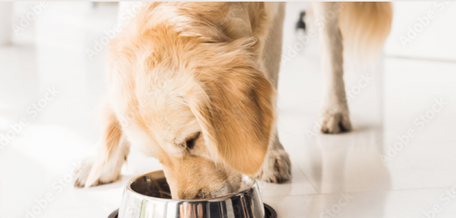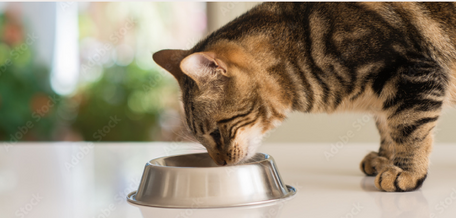If you spend any time scrolling through pet parent groups or TikTok’s #PetWellness tag, chances are you’ve seen goat milk for cats and goat milk for dogs gaining serious traction. With creamy textures, digestive perks, and all the “raw and real” vibes, fermented goat milk has become the darling of natural pet nutrition. But are cats and dogs really reaping the same benefits? Not quite. Let’s break down who benefits, how, and what you should know before pouring a bowl.
Key Takeaways
-
Goat milk is lower in lactose, making it easier for cats to digest compared to cow's milk.
-
Dogs benefit from goat milk's electrolytes and collagen, especially after exercise.
-
Goat milk can help mask the taste of supplements, making it easier to give to pets.
-
It's important to choose between raw and pasteurized goat milk, considering safety and benefits.
-
There are fun ways to serve goat milk, like freezing it into cubes or mixing it with food.
Introduction
It's important to remember that cats and dogs have different nutritional needs. What's beneficial for one might not be ideal for the other. Let's explore the specific advantages of goat milk for both cats and dogs, and how to serve it safely and effectively. We'll look at why goat milk is often considered a great alternative to lactose‑free pet milk, and how it can fit into your pet's diet.
When comparing goat milk for pets to cow’s milk, the difference is more than just flavor. Here's a quick nutrient breakdown:
|
Nutrient |
Goat Milk (Per Cup) |
Cow Milk (Per Cup) |
|
Protein |
8.7g |
8g |
|
Fat |
10g |
8g |
|
Lactose |
Lower |
Higher |
|
Natural Taurine |
Present |
Absent |
|
Probiotics (Raw/Fermented) |
High |
Very Low |
Why Cats Love Goat Milk
Cats are notoriously picky, but many seem to enjoy goat milk. What's the appeal? It might be the taste, the texture, or the benefits of goat milk themselves. Let's explore why this dairy alternative is gaining popularity among feline fans.
Here are some reasons why cats love goat milk:
-
Lower lactose content
-
Good source of hydration
-
Contains probiotics for cats
Easier on Sensitive Tummies
Many cats are lactose intolerant, which makes cow’s milk a no-go. Goat milk contains less lactose and has smaller fat globules, making it easier for cats to digest. This can be a gentler alternative for felines prone to digestive upset. It's worth noting that organic goat milk may offer additional benefits.
Boosts Hydration
If your cat is on a kibble-heavy diet, adding a splash of lactose-free pet milk can up their daily water intake. This hydration boost supports kidney function and can even help prevent urinary issues. Think of it as a flavorful, nutrient-rich alternative to plain water.
Probiotics for Purr-fect Poops
Fermented goat milk is loaded with natural probiotics for cats. These friendly bacteria support gut health, improve stool quality, and help regulate digestion which is particularly beneficial for cats with sensitive stomachs or recent antibiotic use.
Not sure if goat milk is better than other dairy alternatives? Read our article on Comparing Organic Goat Milk and Other Dairy Alternatives for Cats
Unique Benefits of Goat Milk for Dogs
Dogs, on the other hand, may not be as finicky but they still love (and benefit from) a cold gulp of goat milk..
Post-exercise electrolytes
After a long hike or an intense game of fetch, dogs lose fluids and electrolytes just like we do. Goat milk naturally contains electrolytes like potassium and sodium, which can help replenish what's lost and keep tails wagging. Think of it as a natural sports drink for your pup! It's way better than plain water for getting them back on their feet. You can even combine it with raw meat for a nutritious post-exercise meal.
Joint-friendly collagen peptides
As dogs age, their joints can start to feel the wear and tear. Goat milk contains collagen peptides, which are building blocks for cartilage and can help support joint health and mobility. It's not a miracle cure, but it can be a helpful addition to a joint-friendly diet. Consider adding some joint supplement powder to their diet as well.
Here's a quick look at some of the key nutrients in goat milk that support dogs:
-
Electrolytes: Replenish those lost during exercise.
-
Collagen Peptides: Support joint health.
-
Vitamins & Minerals: Contribute to overall well-being.
-
Probiotics: Aid in digestion and nutrient absorption.
Goat milk can be a simple way to give your dog a little boost. It's easy to add to their food or serve as a refreshing drink. You can even try it with grass-fed goat milk for added benefits.
Sneaky Supplement Delivery
Got a picky pup who won’t touch their joint chews or multivitamins? Pour a little goat milk over their food or blend it in. It masks the flavor of supplements, making health support feel more like a treat.
Possible Drawbacks & Safety Tips
While goat milk for dogs and goat milk for cats has plenty of benefits, it's important to use it safely.
Raw vs. Pasteurized
Raw goat milk for pets retains more enzymes and probiotics but must be handled with care. Choose a reputable source and store it in the fridge. Pasteurized options are safer for immunocompromised pets, but may lose some of the natural goodness. For many pet owners, especially those with young, old, or immune-compromised animals, pasteurized goat milk is the safer option.
Serving Sizes
Knowing how much goat milk to give your cat or dog is important. Start slow. For small cats and dogs, 1–2 tablespoons is usually enough. Larger dogs can have up to ¼ cup daily. Gradually increase if it looks like it’s settling in well.
You may need to adjust based on your pet's size, age, and activity level. Always monitor your pet for any signs of discomfort such as diarrhea or vomiting. If you notice any adverse reactions, stop feeding goat milk and consult your veterinarian. It's also worth noting that some dogs may have allergic reactions to goat milk, so watch for symptoms that might require immediate attention.
Storage & Shelf Life
Always store goat milk in the fridge and use it within 7–10 days of opening. Freeze leftovers in ice cube trays for later. Proper storage is key to keeping goat milk fresh and safe. Here's what you need to know:
-
Refrigeration: Once opened, goat milk should be refrigerated immediately. Always check the expiration date before serving.
-
Freezing: Frozen goat milk cubes are a fun and refreshing treat for pets, especially during hot weather. Thaw frozen goat milk in the refrigerator before serving.
-
Raw Goat Milk: Keep it refrigerated at all times and use it within a few days of opening. Be extra cautious about hygiene to prevent bacterial contamination. Remember, raw food products require careful handling.
Always prioritize your pet's safety when introducing new foods. If you're unsure about the best way to serve goat milk, talk to your vet. They can provide personalized recommendations based on your pet's individual needs.
Still doubtful about trying goat milk for your pet? Read about the “Top 5 Health Benefits of Goat Milk for Cats.”
3 Creative Ways to Serve Goat Milk
Frozen “milk cubes” for hot days
Pour goat milk into ice cube trays, add small pieces of fruit like blueberries or strawberries and just freeze. These frozen treats are perfect for keeping your pet cool and hydrated on a hot day. Plus, they're a fun way to add some variety to their routine. You can even use organic goat milk to make them extra nutritious.
Rehydrating freeze‑dried raw meals
Instead of using plain water to rehydrate food, try using goat milk. This not only adds moisture but also boosts the nutritional content of the meal. The fermented goat milk can make the meal more palatable, especially for picky eaters. It's a simple swap that can make a big difference. You can even sprinkle some goat milk loopies on top for added crunch and flavor.
Goat‑milk “pops” with blueberries
Blend goat milk with a handful of blueberries for an antioxidant boost. Pour the mixture into popsicle molds or even small paper cups and freeze until solid. These pops are a great way to provide hydration and nutrients with a tasty twist.
Conclusion
Whether you're team feline or canine (or lucky enough to live with both), goat milk for cats and goat milk for dogs offers an easy and delicious way to support overall health. From probiotics to hydration to supplement delivery, it’s no wonder this nutrient-rich superfood is a rising star in pet wellness.
Goat milk is a great way to provide natural support for your pet's health. If you're curious about exploring different options, see available goat-milk blends at BJ's and find the perfect fit for your pet's needs.
If you're curious about the benefits of goat milk, why not give it a try? Our goat milk blends are perfect for anyone looking to explore new flavors and health options. Ready to see what we have? Check out our available goat-milk blends today!
Frequently Asked Questions
Can cats drink goat milk?
Yes, cats can drink goat milk! It's easier for them to digest than cow's milk because it has less lactose.
Is goat milk good for dogs?
Absolutely! Goat milk can be a great treat for dogs, providing hydration and nutrients.
What are the benefits of goat milk for cats?
Goat milk helps with digestion, provides hydration, and contains probiotics that can improve gut health.
How should I serve goat milk to my pets?
You can serve goat milk as a drink, mix it with dry food, or even freeze it into treats.
Are there any risks of giving goat milk to pets?
Some pets might be lactose intolerant. It's best to start with a small amount and watch for any digestive upset.
Can I give my kitten goat milk?
Kittens should not rely on goat milk as a main food source. It's better for adult cats and can be given after they are fully weaned.
How much goat milk can I give to my cat or dog?
Start with a small amount, like a teaspoon, and gradually increase it to a tablespoon or two if they tolerate it well.
Should I choose raw or pasteurized goat milk for my pets?
Pasteurized goat milk is generally safer, but raw goat milk may have more nutrients. Consult your vet for advice.




















